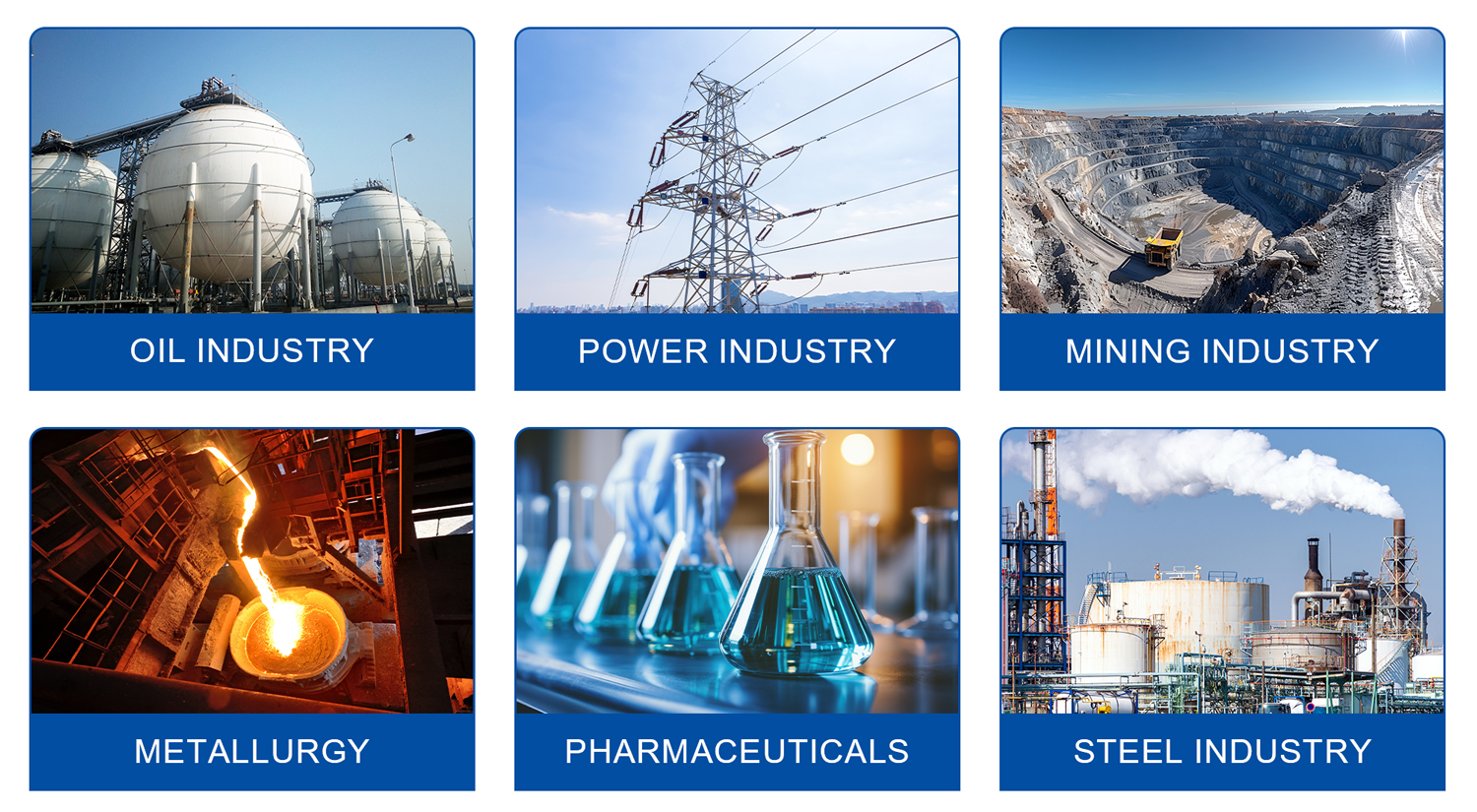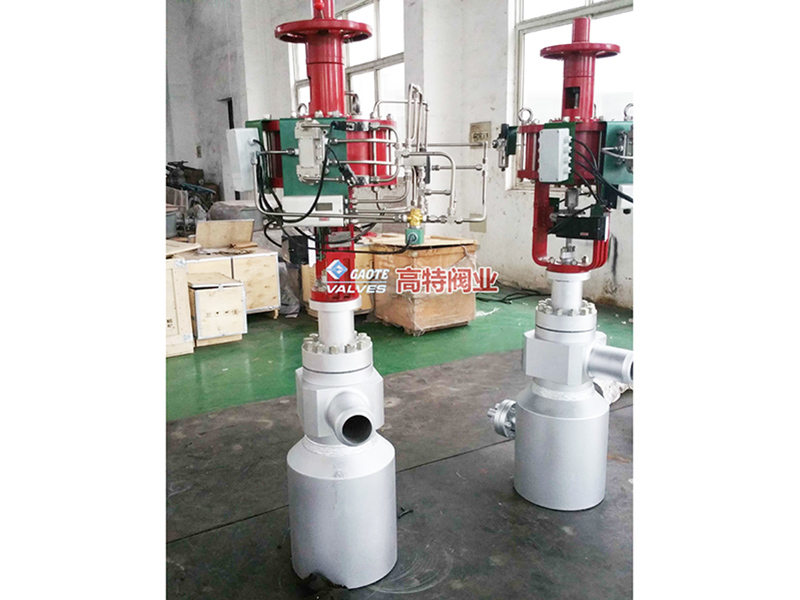Bypass Valve
Bypass Valve
A bypass valve is a valve device commonly used in pipeline systems.


A bypass valve is a valve device commonly used in pipeline systems. It is mainly used to provide a bypass channel when the main valve is maintained or fails, allowing the fluid to bypass the main valve and continue to flow, ensuring the normal operation of the system. Bypass valves are usually used in high-pressure, high-flow pipelines, especially in industries such as petroleum, chemical, electric power and water treatment. They can ensure that the system can still operate smoothly when the main valve is closed or overhauled. It is widely used in places that require continuous fluid supply to reduce downtime caused by equipment maintenance or overhaul.
※ Structural Features
Fluid flows through the bypass channel
When the main valve is closed or fails, the bypass valve automatically opens, and the fluid bypasses the main valve and continues to flow in the pipeline. The on-off control of the bypass valve is usually controlled by manual, pneumatic or electric actuators.
Safety protection of bypass valve
In order to avoid leakage of the bypass valve or damage caused by excessive system pressure, the bypass valve is generally equipped with a safety device or overflow protection system to ensure that the bypass valve can operate safely under high pressure.
Sealing design of bypass valve
The design of the bypass valve needs to take into account the sealing performance to ensure that the fluid does not leak, especially under high pressure and high temperature conditions, good sealing is essential.
※ Product Application
Petroleum and Chemical Industry
During the production process of petroleum and chemical industry, bypass valves are often used for maintenance and emergency treatment of pipeline systems to ensure that the system can still operate smoothly during the main valve maintenance and avoid shutdown.
Power Industry
In the steam or cooling system of power plants, bypass valves are widely used in important links such as steam pipes and cooling water pipes to ensure stable operation during system maintenance and avoid affecting power generation efficiency.
Water Treatment Industry
In sewage treatment and water supply systems, bypass valves are often used for pipeline maintenance and maintenance to ensure that water flow can continue to flow and avoid affecting water treatment processes or water supply.
HVAC System
In HVAC systems, bypass valves can be used to maintain air circulation, especially during the maintenance of heating and cooling equipment, to ensure the continuous flow of cold and warm air without affecting the temperature control in the building.
Metallurgy and Steel Industry
In the production process of metallurgy and steel, bypass valves are used in high-pressure steam and cooling water systems to ensure the safe and stable operation of the system under high temperature and high pressure environments.
※ Product Advantage
Ensure system continuity
The bypass valve can provide a bypass channel when the main valve is maintained or malfunctioned, ensuring the continuous operation of the fluid system without causing production stagnation due to shutdown.
Improve system flexibility
The bypass valve allows the system to flexibly switch working modes as needed, and can quickly adjust the fluid flow direction whether it is normal operation, maintenance or emergency situations.
Reduce maintenance costs
Bypass valves can reduce production losses and maintenance costs caused by system shutdowns. Especially in long-cycle production equipment, bypass valves can significantly improve equipment availability and economic benefits.
Quick response and control
Controlled by pneumatic or electric actuators, the bypass valve can quickly respond to fluid flow needs and ensure the efficient operation of the fluid pipeline system.
※ FAQ
What are the installation requirements for control valves?
The valve should be installed at the appropriate position of the pipeline to ensure that the flow direction is consistent with the direction indicated by the valve body; secondly, check whether the valve and its accessories are intact before installation to ensure that there is no damage; during installation, ensure that the pipeline connection is stable to avoid stress concentration and prevent damage to the valve; in addition, sufficient space should be provided for the valve to facilitate adjustment, inspection and maintenance; finally, the valve should be protected from excessive vibration or temperature, especially under high pressure and high temperature environments.
What are the common applications of temperature and pressure reducers?
Temperature and pressure reducers are widely used in many fields. They are mainly used in steam systems to reduce high-pressure steam to appropriate pressure to ensure safe operation of equipment. They are commonly used in power, fertilizer, food processing and other industries. They are also used in oil and gas pipelines, chemical production, pharmaceutical plants, etc. to ensure stable pipeline pressure and avoid system overpressure or excessive temperature. In addition, reducers are also used in HVAC, metallurgy and other industries to adjust the temperature and pressure of the fluid in the system to ensure the smooth progress of the process.
How to maintain medium and high pressure valves?
When maintaining medium and high pressure valves, first check the wear of key components such as valve body, valve seat, sealing ring and valve stem regularly. Clean the valve to prevent impurities from blocking and affecting operation. Check the operating performance of the valve to ensure flexible opening and closing without sticking. Check the sealing to prevent leakage and replace the seals if necessary. For valves that operate at high pressure for a long time, it is recommended to perform functional tests regularly to ensure their reliability under high pressure environment. In addition, check the connection parts of the valve to avoid looseness or leakage caused by vibration or corrosion.
※ Industry Applications

※ Company Introduction
Jiangsu Gaote Valve Industry Co., Ltd. was established in 2003. The company is a medium-sized enterprise specializing in the production of various petrochemical and power station valve series. The main products include high-temperature and high-pressure power station valves, gate valves, stop valves, ball valves, check valves, butterfly valves, instrument valves, needle valves, regulating valves and non-standard special valves for power stations, etc. Hundreds of varieties and specifications of valves, products are widely used in power, petrochemical, metallurgy, pharmaceutical, mining, steel, mining, water supply and drainage and other industries. The company's R&D team actively explores the field of valves and explores a path of industrial upgrading from ordinary valves to valves.
Jiangsu Gaote Valve Industry Co., Ltd. is an innovative demonstration enterprise of small and medium-sized enterprises in Jiangsu Province. It is located in the Economic Development Zone of Funing County, Jiangsu Province, and National Highway 204 passes through the territory. The company has passed the ISO9001 quality system certification and the special equipment manufacturing license of the People's Republic of China. It is a member unit of the power station accessories supply of the State Power Corporation, a member unit of the Sinopec Equipment Resources Market, and a member unit of the first-level supply network of China National Petroleum Corporation. It has gradually established a good reputation in power station valves. The company has an advanced management mechanism, with fixed assets of more than 30 million yuan, more than 100 sets of sophisticated mechanical processing equipment and inspection and testing equipment, and more than 10 technical R&D personnel, forming an integrated production, sales and service.










